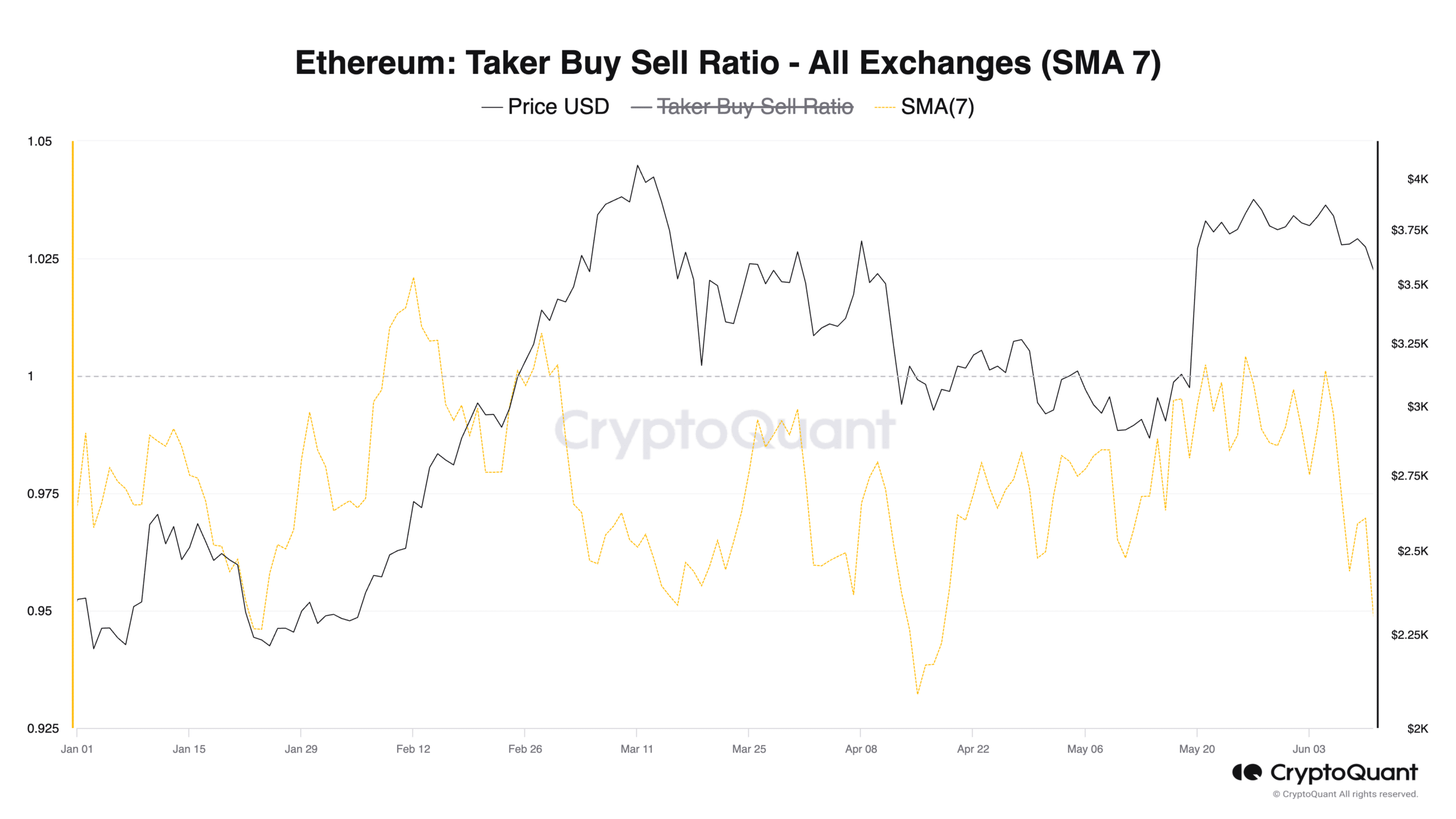- Ethereum’s Taker Buy Sell Ratio has remained below 1 since the 5th of June.
- This means there is more sell volume than buy volume in its Futures market.
Ethereum’s [ETH] Taker Buy Sell Ratio, assessed using a seven-day simple moving average (SMA), has trended downward since the 5th of June, data from CryptoQuant has shown.
According to the on-chain data provider, the metric has returned values less than one since then. As of this writing, ETH’s Taker Buy Sell Ratio was 0.96.


Source: CryptoQuant
An asset’s Taker Buy Sell Ratio measures the ratio between its buy and sell volumes in the Futures market. A value greater than 1 indicates more buy volume, while a value less than 1 indicates more sell volume.
When the value of this metric declines in this manner, it suggests that the Futures market for the asset in question has seen more sell orders than buy orders.
In a recent report, pseudonymous CryptoQuant analyst ShayanBTC commented on the impact of this on ETH’s price. According to ShayanBTC,
“This trend suggests that most futures traders have been selling Ethereum aggressively, either for speculative purposes or to realize profits. This significant drop in the metric is a bearish signal, suggesting that the current downward retracement could persist if this trend continues.”
ETH Funding Rate remains positive
The brief decline in ETH’s Futures Open Interest, since the 5th of June, confirmed the position above.
At press time, ETH’s Futures Open Interest was $16.37 billion, having declined by 2% since then, according to Coinglass data.
The coin’s Futures Open Interest measures the total number of outstanding Futures contracts or positions that have not been closed or settled.
When it drops this way, it suggests that some Futures traders are closing their positions without opening new ones. This is often viewed as a shift in sentiment from bullish to bearish.
Read Ethereum’s [ETH] Price Prediction 2024-25
However, despite some market participants’ bearish bias toward the coin, the majority of ETH’s Futures traders have opened positions in favor of continued price growth.
This is based on the readings from the coin’s Funding Rate, which has returned only positive values since the 3rd of May, per Coinglass data.


Source: Coinglass
Funding Rates are used in perpetual Futures contracts to ensure the contract price stays close to the spot price. When it is positive, it suggests a significant demand for long positions.


